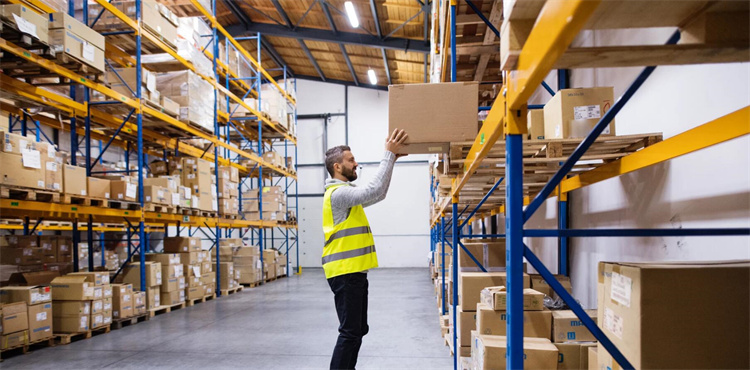Digital Innovations Revolutionizing the Logistics Industry

The logistics industry has undergone a massive transformation in recent years. Technology plays a key role in this revolution. Digital innovations increase efficiency, optimize operations, and enhance the speed of logistic services. These advancements lead to higher customer satisfaction and increased revenue. By 2027, global spending on digital transformation in the logistics industry is projected to reach $84.6 billion. Despite these benefits, logistics companies have been slower to adopt digital innovations compared to other industries. However, 87% of shippers have maintained or grown their technology investments since 2020.
Digital Transformation in the Logistics Industry

Key Digital Innovations in Logistics
Internet of Things (IoT)
The Internet of Things (IoT) transforms logistics by enabling real-time tracking of goods. IoT sensors capture and exchange data, allowing logistics companies to monitor shipments from departure to final destination. This technology provides real-time monitoring of goods, offering valuable information that enhances inventory management efficiency. IoT devices increase visibility, streamline supply chains, and optimize resource allocation.
Artificial Intelligence and Machine Learning
Artificial Intelligence (AI) and Machine Learning (ML) drive efficiency in logistics through automation and data analysis. AI systems automate scheduling for trucks and manage cargoes. AI-powered algorithms analyze vast amounts of data to predict demand and optimize routes. Machine learning models improve demand forecasting, helping companies manage inventory effectively. AI-based Computer Vision technology identifies damaged goods, ensuring quality control.
Blockchain Technology
Blockchain technology offers a secure and efficient solution for digital transactions in the logistics industry. Its decentralized and transparent nature makes it ideal for streamlining processes such as contract management and customs documentation. Blockchain reduces paperwork and eliminates intermediaries, enhancing the efficiency of payment settlements. This technology ensures tamper-free records, providing reliability in logistics operations.
Autonomous Vehicles and Drones
Autonomous vehicles and drones revolutionize logistics by offering innovative delivery solutions. These technologies reduce human intervention, increasing efficiency and reducing operational costs. Autonomous vehicles optimize transportation routes, while drones provide quick and efficient delivery options. The integration of these technologies enhances the speed and reliability of logistics services.
JUSDA's Role in Digital Transformation
Comprehensive End-to-End Solutions
JUSDA excels in providing comprehensive end-to-end supply chain solutions. The company integrates raw material procurement, manufacturing, and distribution, offering seamless services from factory to consumer. JUSDA's commitment to digital transformation in the logistics industry is evident in its ability to deliver efficient and reliable logistics solutions.
Leveraging Advanced Technologies
JUSDA leverages advanced technologies such as big data, IoT, and cloud platforms to support complex customer demands. The company's JusLink platform offers real-time collaborative platforms and intelligent supply chain systems. JUSDA's AI-driven collaborative systems enhance supply chain visibility and collaboration, ensuring timely delivery and reducing overhead costs. The company's global presence and extensive infrastructure support its digital transformation initiatives.

JUSDA Solutions
To provide you with professional solutions and quotations.
Impact on Business Models and Industry Practices
Shift Towards Digital Supply Chains
Definition and Overview
Digital transformation in the logistics industry has led to the development of digital supply chains. Digital supply chains utilize technology to enhance the flow of goods and information. Companies integrate advanced systems to monitor and manage logistics processes. This integration ensures efficiency and accuracy in operations.
Benefits of Digital Supply Chains
The benefits of digital supply chains are numerous. Real-time data access improves decision-making. Companies can predict demand and adjust inventory levels accordingly. Enhanced visibility reduces delays and errors in shipments. Digital transformation in the logistics industry enables seamless communication between stakeholders. This communication fosters collaboration and efficiency.
Challenges in Implementation
Implementing digital supply chains presents challenges. Companies face high initial costs for technology adoption. The logistics industry requires skilled personnel to manage new systems. Resistance to change can hinder digital transformation in the logistics industry. Companies must address these challenges to fully realize the benefits of digital supply chains.
Enhanced Customer Experience
Definition and Overview
Digital transformation in the logistics industry enhances customer experience. Technology enables companies to provide personalized services. Customers receive tailored solutions that meet specific needs. Real-time tracking offers transparency and builds trust with customers.
Personalization and Real-Time Tracking
Personalization plays a crucial role in customer satisfaction. Companies use data analytics to understand customer preferences. Logistics providers offer customized delivery options based on this data. Real-time tracking allows customers to monitor shipments. This feature increases convenience and reduces uncertainty.
Customer Satisfaction and Loyalty
Customer satisfaction leads to loyalty. Digital transformation in the logistics industry ensures timely and accurate deliveries. Satisfied customers are more likely to return for future services. Companies build long-term relationships by exceeding customer expectations. This loyalty translates into increased revenue and market share.
Cost Reduction and Efficiency
Definition and Overview
Cost reduction remains a priority in logistics. Digital transformation in the logistics industry optimizes operations and reduces expenses. Companies streamline processes through automation and technology. These efforts result in significant cost savings.
Automation and Process Optimization
Automation enhances efficiency in logistics operations. Companies use technology to automate repetitive tasks. This automation reduces human error and increases productivity. Process optimization leads to faster and more reliable services. The logistics industry benefits from reduced operational costs.
Long-Term Financial Benefits
Long-term financial benefits arise from digital transformation in the logistics industry. Companies experience sustained cost savings over time. Investment in technology yields high returns. A case study of ICP Group demonstrates this potential. The company identified a 7% savings opportunity through digital twin technology. Continuous optimization ensures ongoing financial gains.
Digital transformation in the logistics industry introduces groundbreaking technologies such as IoT, AI, blockchain, and autonomous vehicles. These innovations revolutionize logistics operations by enhancing efficiency, transparency, and sustainability. The integration of these technologies enables companies to modernize outdated systems and automate processes. This transformation ensures better customer experiences and positions companies for long-term success. The logistics industry continues to evolve with digital advancements, paving the way for unprecedented levels of innovation and excellence.
See Also
Innovating Supply Chains: Transforming the Logistics Industry
Tomorrow's Logistics Revolution: AI in the Supply Chain
Digital Technology in Future Logistics: Clearing the Way
